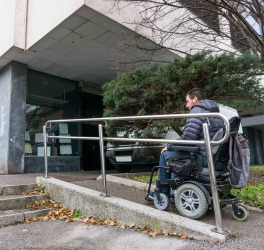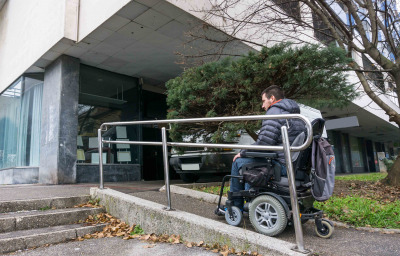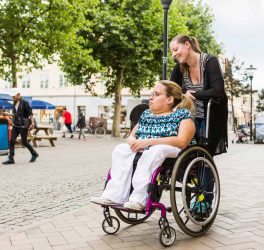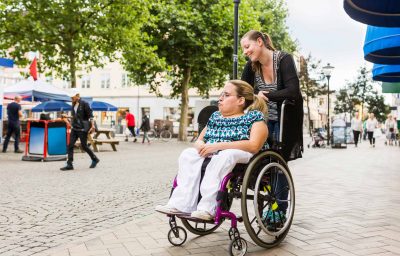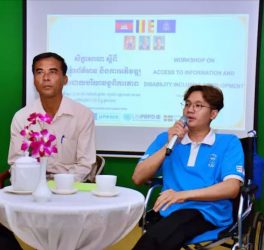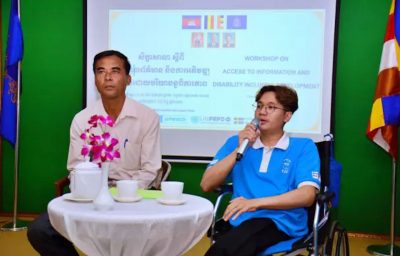
Japan’s transport ministry will call on the operators of bullet train services to make their carriages more accessible for wheelchair users, reports NHK.
The ministry has decided to revise guidelines for public transportation, following discussions by a panel of officials from railway companies and advocacy groups for persons with disabilities.
Panel members pointed out that Shinkansen bullet trains devote less space for wheelchair users compared to high-speed rail services in other countries.
They also said the space is so small that users have difficulty keeping their wheelchairs away from aisles.
The new guidelines will call on bullet train operators to secure a spacious area in each car where several wheelchair users could stay side by side.
Such areas should be large enough for large, stretcher-like wheelchairs. Some of the areas should be located by windows so that wheelchair users can enjoy a view of the landscape.
The ministry will also ask the operators to build a system allowing people to book the space online.

